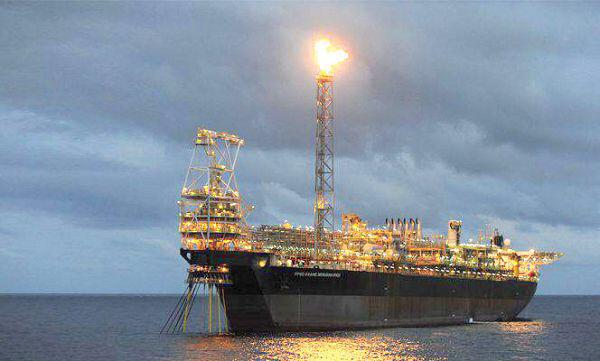
Nation loses GH¢5.7b oil revenue to COVID-19
Ghana has lost about GH¢5.7 billion ($ 1.04 billion) in oil revenues this year as a result of the COVID-19.
According to the country upstream oil industry regulator, the Petroleum Commission, the advent of the novel coronavirus continued to affect the upstream oil and gas sector and the national economy greatly.
The Chief Executive of the Petroleum Commission, Mr Egbert Faibille Jnr., who made this known at the opening session of a three-day virtual conference organised by the Africa Centre for Energy Policy (ACEP), said the industry had suffered significant shocks which did not only affect the economy but also impact on work obligations and operations.
He said the shortfall in revenue was very significant and that companies had to invest heavily to enable staff to work remotely to keep the industry running.
Licensing round
Mr Faibille said the industry regulator no doubt attracted a considerable number of investors after the first licensing round which saw 13-potential entrants including BP, Hunt Oil, Shell, among others, visiting the data room and were awaiting the next bidding round and limited negotiation periods to acquire blocks.
However, the commission was worried that the intentions by the entrants were all in abeyance today as a result of the pandemic.
He warned that the pandemic was likely to delay the country’s second licensing round as the government prioritises managing the domestic impact of the virus and waits for investment conditions to improve.”
The shocks
Speaking on the theme : “The Impact Of COVID-19 in the operations of upstream oil and gas companies in Africa and surviving strategies: the regulator’s perspectives,” Mr Faibille said preliminary analysis of the impact on the real sector showed an expected decline in growth rate of (GDP) from 6.8 per cent to 2.6 per cent.
He said although oil production was ongoing, production and revenue forecast for the year had been significantly affected, largely due to the postponement of the Pecan Development Campaign.
Plan of development
Aker Energy was expected to submit its plan of development (PoD) in the second quarter of 2020 and subsequently make the final investment decision to commence the project and the Pecan Development, valued at $4.4 billion, but was postponed in March, 2020.
Records at the Finance Ministry, Mr Faibille said, indicated that the total estimated fiscal impact from shortfall in petroleum receipts, shortfall import duties, shortfall in other tax revenues, the cost of the preparedness plan, and the cost of Coronavirus Alleviation Programme accrued to ¢21.42 billion ($3.89 billion) representing 2.5 per cent of revised GDP.
Work obligations & operations
He said aside from the economy, impact on work obligations and operations for the industry players were grave saying “the ongoing or new projects across the country's oil and gas value chain are likely to face numerous challenges in terms of project execution, planning and risk management. “
The year, he said, began with the commission approving work programmes and budgets for exploration and production companies in the exploratory and appraisal stages.
“The companies were due to undertake various drilling campaigns, acquisition and interpretation of seismic, geological and geophysics data which are projects estimated to cost about $324m,’’ he stated.
Mr Faibille said it was worth noting that the initial period or extensions granted to some of the companies under the petroleum agreement were due to expire.
The impact of the pandemic, he said, had necessitated the freezing of the work programmes and a decision to restore the period lost as a result, saying: “Critical operations and maintenance works on production facilities scheduled for the year have either been stalled or cancelled.”
Safety measures
“The skeletal workforce operated by many companies in the effort to adhere to safety measures and social distancing has exacerbated the situation,” he said.
He said another impact of the pandemic was, particularly, visible on the demand for the services industry, and that the service industry segment of the oil and gas value chain was largely price- sensitive and operated on low-profit margins with a heavy dependency on materials management, supply chain, workforce management and various other economic parameters.
Short-term risk
Mr Faibille said industry investors were likely to be reluctant to commit an exploration budget to licensing rounds in the near term due to the economically challenging conditions and uncertainty created by COVID-19.
“Looking further ahead, the Commission expects that licensing round activities will be subject to significant uncertainties, stemming both from the unknown length of the COVID-19, demand shock and the duration of the current excess supply,” he stated.
Some of the participants in the conference expressed worry about the developments and also shared various experiences and the way forward for Africa.